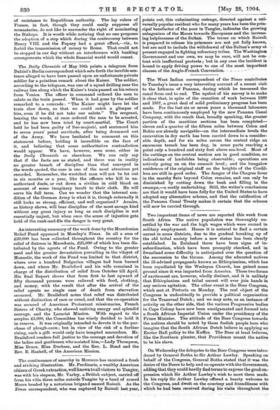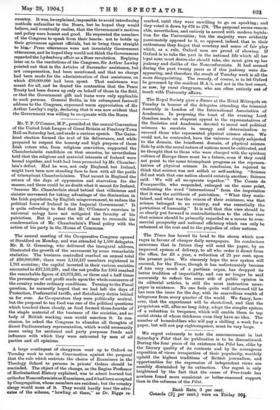On Wednesday the delegates to the Boer Congress were intro-
duced by General Botha to Sir Arthur Lawley. Speaking on behalf of the Congress, General Botha stated that it was the desire of the Boers to help and co-operate with the Government, adding that they could hardly find terms to express the good Im- pression which Sir Arthur Lawley's wish to meet them made. In his reply Sir Arthur Lawley offered a hearty welcome to the Congress, and dwelt on the courtesy and friendliness with which he had been received during his visits throughout the
country. It was, he explained, impossible to avoid introducing methods unfamiliar to the Boers, but he hoped they would believe, and eventually realise, that the Government's motives and policy were honest and good. He requested the members of the Congress to speak from their hearts: not to bottle up their grievances against officials, but to bring them straight to hirer- Press utterances were not invariably Government utterances, and he hoped they would not think the Government regarded the Lydenburg affair as a Boer revolution. Replying later on to the resolutions of the Congress, Sir Arthur Lawley pointed out that in the Articles of Surrender assistance, but not compensation, had been mentioned, and that no charge had been made for the administration of that assistance, on which £10,000,000 had been spent. That assistance was meant for all, and he denied the contention that the Peace Treaty had been drawn up only on behalf of those in the field, or that the Government gift and loans were only applicable to such persons. General Botha, in his subsequent farewell address to the Congress, expressed warm appreciation of Sir Arthur Lawley's reply, declaring that it was now evident that the Government was willing to co-operate with the Boers.







































 Previous page
Previous page